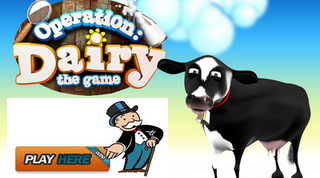Technical Support

On the one hand the public very much like to have a supply of milk, cheese and beef. On the other hand they would like to minimise the temperature rise that is a consequence of the emission of greenhouse gases.
How to combine the two is a dilemma as they pull in opposite directions. But it is not impossible. Scientists from Aarhus University are looking at methods to limit the emission of greenhouse gases from cattle farming. The report from Aarhus University presents the results and future prospects of the research where the challenges are tackled from different angles.
Farming contributes to global warming
At global level farming contributions around 18 per cent to total emissions of greenhouse gases and 22 per cent of this is believed to originate from the production of milk. The corresponding figures for Denmark show that here 16 per cent of greenhouse gases originate from agriculture and that 40 per cent of this is from cattle farming.
"For each day that passes where emissions continue to rise, the harder it becomes to avoid self-reinforcing climate changes that not only will be enormously harmful for the developing countries, but also very expensive in adaptation costs for the industrial countries," says professor Jørgen E. Olesen in the report.
Agriculture needs immediate and concrete actions to reduce the man-made climate changes. A concerted effort in agriculture requires insight into where exactly in the production chain greenhouse gases are leaked and what actions are possible to reduce emissions. In cattle farming methane is a particularly large source.
Documentation and improvements
Analyses from 20 cattle farms have enabled a climate inventory to be prepared. Methane is responsible for over half of total emissions from the cattle farms. The methane mainly originates from the digestion of the feed in the animals. Nitrous oxide makes up 20 per cent of total emissions and originates, among other things, from the turnover of the nitrogen from animal manure and mineral fertiliser.
"Significant reductions in the emission of greenhouse gases per kilo milk can only be achieved by measures that reduce methane or nitrous oxide. A high feed use efficiency is therefore crucial. This can reduce the emission of methane due to less feed having to be digested in the rumen and reduce the emission of nitrous oxide due to less nitrogen being excreted in animal manure per kilo milk produced," explains senior scientist Troels Kristensen in the report.
The report describes the effects of feeding, genetics and the microorganisms in the rumen on the emission of greenhouse gases from cattle. The report also describes the importance of, respectively, manure management and cultivation, and the processing and transport of feed on the emission of greenhouse gases. These are all factors that can be manipulated to reduce the emission of greenhouse gases in cattle farming.























